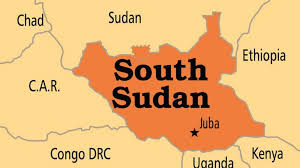These tensions are partly caused by climate change, which is forcing herders to move their cattle in search of greener pastures, leading to clashes with farmers protecting their crops.
The issue came to light during a United Nations Mission in South Sudan (UNMISS) training on civilian protection. 50 participants, including local leaders, women, and youth, discussed conflict mitigation strategies.
“There can be friction when herders bring their cattle to areas with crops,” said Lauro Ohiyu, a UNMISS representative.
Rokon resident Momur Kenyi believes the government should support herders to reduce the need for them to encroach on farmland. “Training on modern ranching techniques and improving water access in traditional grazing areas could help,” he suggested.
The lack of water is a growing concern. Swamps and streams are drying up due to heatwaves and climate change. “This is an environmental disaster waiting to happen,” warned Samuel Jada, a Catholic Deacon. “Planting more trees is crucial to reverse this trend.”
The training also addressed another community challenge: child marriage. This harmful practice can lead to health problems for young girls and deprive them of educational opportunities. Esther Frazer Ladu, a resident and training participant, vowed to continue raising awareness about the importance of education for all children.
The UNMISS training aimed to equip Rokon residents with tools for conflict mitigation and community policing, fostering a more peaceful future for the village.
ABJ/APA


